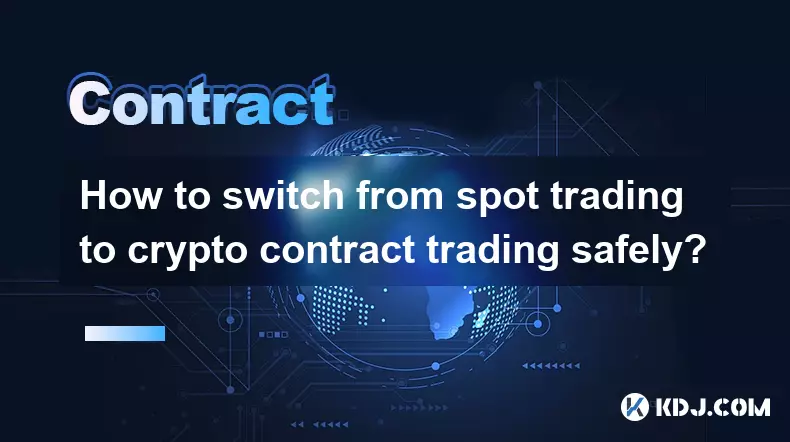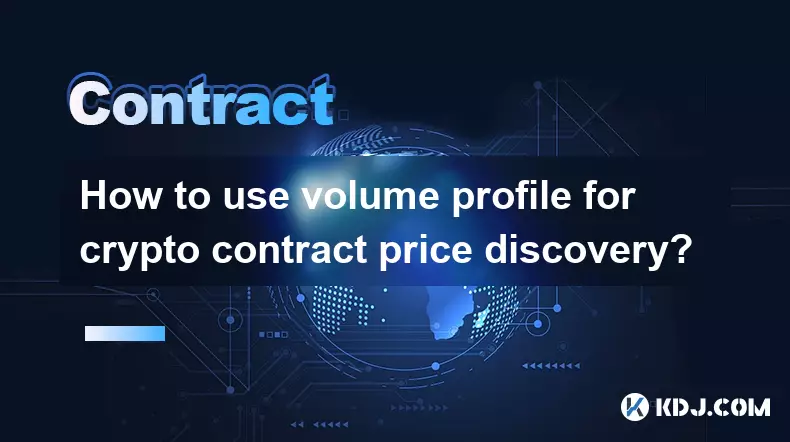-
 bitcoin
bitcoin $87959.907984 USD
1.34% -
 ethereum
ethereum $2920.497338 USD
3.04% -
 tether
tether $0.999775 USD
0.00% -
 xrp
xrp $2.237324 USD
8.12% -
 bnb
bnb $860.243768 USD
0.90% -
 solana
solana $138.089498 USD
5.43% -
 usd-coin
usd-coin $0.999807 USD
0.01% -
 tron
tron $0.272801 USD
-1.53% -
 dogecoin
dogecoin $0.150904 USD
2.96% -
 cardano
cardano $0.421635 USD
1.97% -
 hyperliquid
hyperliquid $32.152445 USD
2.23% -
 bitcoin-cash
bitcoin-cash $533.301069 USD
-1.94% -
 chainlink
chainlink $12.953417 USD
2.68% -
 unus-sed-leo
unus-sed-leo $9.535951 USD
0.73% -
 zcash
zcash $521.483386 USD
-2.87%
Bitget contract trading Explanation
Bitget's flexible contract trading platform empowers traders with multiple contract types, adjustable leverage, and risk management tools.
Nov 10, 2024 at 12:36 pm

Contract trading, also known as futures trading, is a popular and potentially lucrative way to trade cryptocurrencies. By entering into a contract with another party, you speculate on the future price movements of an underlying asset, such as Bitcoin or Ethereum. Bitget, a leading cryptocurrency exchange, offers a robust contract trading platform with a wide range of features and instruments. This guide will provide a comprehensive explanation of Bitget contract trading, covering everything from getting started to advanced trading strategies.
Step 1: Choosing a Contract TypeBitget offers two main types of contracts: USDT-Margined Contracts and Coin-Margined Contracts. USDT-Margined Contracts are denominated in USDT, a stablecoin pegged to the US dollar. This type of contract is suitable for traders who prefer to avoid price fluctuations in their underlying assets. Coin-Margined Contracts, on the other hand, are denominated in the underlying cryptocurrency itself. This type of contract is preferred by traders who expect the underlying asset to experience significant price movements.
Step 2: LeverageLeverage is a feature that allows you to trade with more capital than you actually have in your account. By using leverage, you can potentially increase your profits, but you also increase your risk. Bitget offers a range of leverage options, from 10x to 125x. It's crucial to choose an appropriate leverage level that aligns with your risk tolerance and trading strategy.
Step 3: Contract SizeContract size refers to the number of underlying assets represented by each contract. Bitget offers a variety of contract sizes, ranging from 100 to 100,000 units. The contract size you choose should depend on your trading style and risk tolerance. Larger contract sizes can result in larger profits, but they also come with increased risk.
Step 4: Opening a PositionTo open a position, you need to specify the contract type, underlying asset, leverage, and contract size. You can also choose between two order types: Limit Orders and Market Orders. Limit Orders are placed at a predetermined price, while Market Orders are executed at the current market price.
Step 5: Managing RiskRisk management is essential in contract trading. Bitget offers a range of risk management tools, including Stop Loss Orders, Take Profit Orders, and Trailing Stop Loss Orders. These tools allow you to automate the closing of your positions when certain price levels are reached, protecting you from potential losses.
Step 6: Closing a PositionTo close a position, you can simply place an order for the opposite side of your original trade. For example, if you opened a long position (buying a contract), you would close it by placing a short position (selling a contract). Your profit or loss on the trade will be determined by the difference between the entry and exit prices.
Advanced Trading StrategiesIn addition to the basic steps outlined above, Bitget offers a range of advanced trading strategies that can help you maximize your profits and minimize your risks. These strategies include:
- Hedging: Using multiple contracts with opposite positions to reduce risk.
- Scalping: Trading on small price fluctuations.
- Arbitraging: Taking advantage of price differences between different exchanges.
Bitget contract trading offers a wide range of possibilities for cryptocurrency traders. By following the steps outlined in this guide and employing appropriate risk management techniques, you can potentially generate substantial profits while minimizing your downside risk.
Disclaimer:info@kdj.com
The information provided is not trading advice. kdj.com does not assume any responsibility for any investments made based on the information provided in this article. Cryptocurrencies are highly volatile and it is highly recommended that you invest with caution after thorough research!
If you believe that the content used on this website infringes your copyright, please contact us immediately (info@kdj.com) and we will delete it promptly.
- Trump's Northern Blast: How Canada Remarks Jolted WLFI Price and Shook Crypto Holders
- 2026-02-01 21:55:01
- LivLive Ignites Crypto Presale with Trillion-Dollar Ambitions: The Reality Layer Takes Center Stage
- 2026-02-01 21:50:02
- Buttcoin's Big Apple Buzz: Surging on Coinbase, Trending in the Crypto Wild West
- 2026-02-01 21:45:01
- Tokenization, Stablecoins, Remittances: The New York Minute for Global Finance
- 2026-02-01 19:20:01
- BlockDAG Poised for 100x Crypto Opportunity as Presale Enters Final Hours, Promising Massive Gains
- 2026-02-01 19:20:01
- Circle Charts Bold Course: Stablecoins to Reshape Global Finance by 2026
- 2026-02-01 19:25:01
Related knowledge

How to understand the impact of Bitcoin ETFs on crypto contracts?
Feb 01,2026 at 04:19pm
Bitcoin ETFs and Market Liquidity1. Bitcoin ETFs introduce institutional capital directly into the spot market, increasing order book depth and reduci...

How to trade DeFi contracts during the current liquidity surge?
Feb 01,2026 at 07:00am
Understanding Liquidity Dynamics in DeFi Protocols1. Liquidity surges in DeFi are often triggered by coordinated capital inflows from yield farming in...

How to trade micro-cap crypto contracts with high growth potential?
Feb 01,2026 at 02:20pm
Understanding Micro-Cap Crypto Contracts1. Micro-cap crypto contracts refer to derivative instruments tied to tokens with market capitalizations under...

How to optimize your workspace for professional crypto contract trading?
Feb 01,2026 at 08:20pm
Hardware Infrastructure Requirements1. High-frequency crypto contract trading demands ultra-low latency execution. A dedicated workstation with a mini...

How to switch from spot trading to crypto contract trading safely?
Feb 01,2026 at 03:59pm
Understanding the Core Differences Between Spot and Contract Trading1. Spot trading involves the immediate exchange of cryptocurrencies for fiat or ot...

How to use volume profile for crypto contract price discovery?
Feb 01,2026 at 09:39am
Understanding Volume Profile Basics1. Volume profile is a visual representation of trading activity at specific price levels over a defined time perio...

How to understand the impact of Bitcoin ETFs on crypto contracts?
Feb 01,2026 at 04:19pm
Bitcoin ETFs and Market Liquidity1. Bitcoin ETFs introduce institutional capital directly into the spot market, increasing order book depth and reduci...

How to trade DeFi contracts during the current liquidity surge?
Feb 01,2026 at 07:00am
Understanding Liquidity Dynamics in DeFi Protocols1. Liquidity surges in DeFi are often triggered by coordinated capital inflows from yield farming in...

How to trade micro-cap crypto contracts with high growth potential?
Feb 01,2026 at 02:20pm
Understanding Micro-Cap Crypto Contracts1. Micro-cap crypto contracts refer to derivative instruments tied to tokens with market capitalizations under...

How to optimize your workspace for professional crypto contract trading?
Feb 01,2026 at 08:20pm
Hardware Infrastructure Requirements1. High-frequency crypto contract trading demands ultra-low latency execution. A dedicated workstation with a mini...

How to switch from spot trading to crypto contract trading safely?
Feb 01,2026 at 03:59pm
Understanding the Core Differences Between Spot and Contract Trading1. Spot trading involves the immediate exchange of cryptocurrencies for fiat or ot...

How to use volume profile for crypto contract price discovery?
Feb 01,2026 at 09:39am
Understanding Volume Profile Basics1. Volume profile is a visual representation of trading activity at specific price levels over a defined time perio...
See all articles
























![[Audio stories] Streamer Became a Billionaire Overnight After Buying One Junk Coin [Audio stories] Streamer Became a Billionaire Overnight After Buying One Junk Coin](/uploads/2026/02/01/cryptocurrencies-news/videos/origin_697eaa9a495ed_image_500_375.webp)

















































